Your trust: our reliability
Your trust in Clinical Odyssey stems from the reliability of our four titles and their 700+ scenarios. Learn more about our content and how we create it.
Subscribe now!Different formats for different needs
Clinical Odyssey’s titles are an assortment of different didactic formats tailored to meet your multiple learning styles and needs.
Clinical Sense
Interactive scenarios to help you improve your ability to diagnose and manage patients over time (from presentation to admission to discharge and follow-up).
Scenarios provide relevant facts and succinct explanations behind the underlying diagnostic and management rationale. They cover medical knowledge in breadth, and each takes between 10 to 15 minutes to complete.
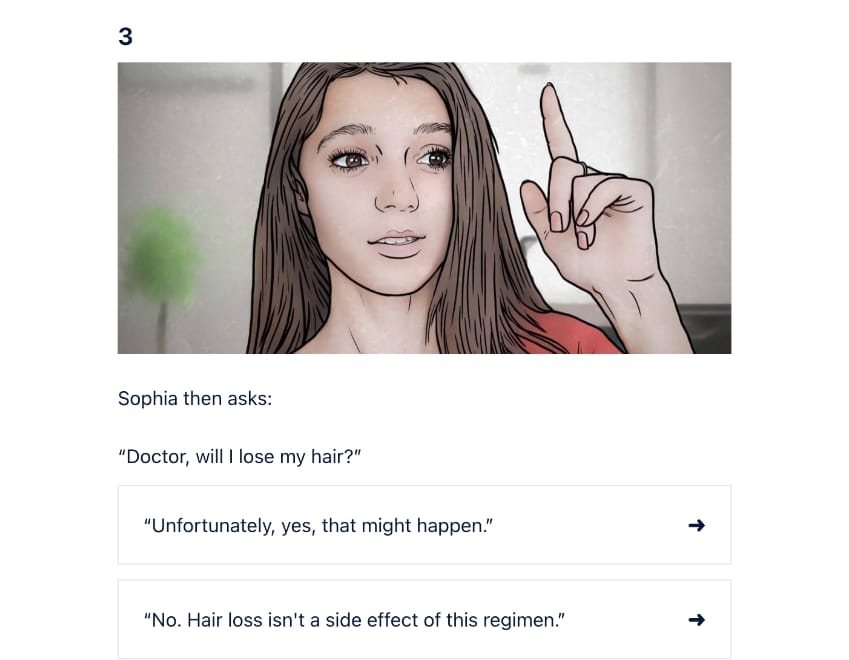
Explain Medicine
Reference articles to help you stay up to date, with easy-to-understand facts directly backed by citations to papers in peer-reviewed journals or standard textbook chapters.
Articles present information as fact-explanation pairs (i.e., a succinct fact is paired with a detailed explanation), which can be read independently of one another. Articles cover medical knowledge in depth, and each takes between 10 and 15 minutes to read.
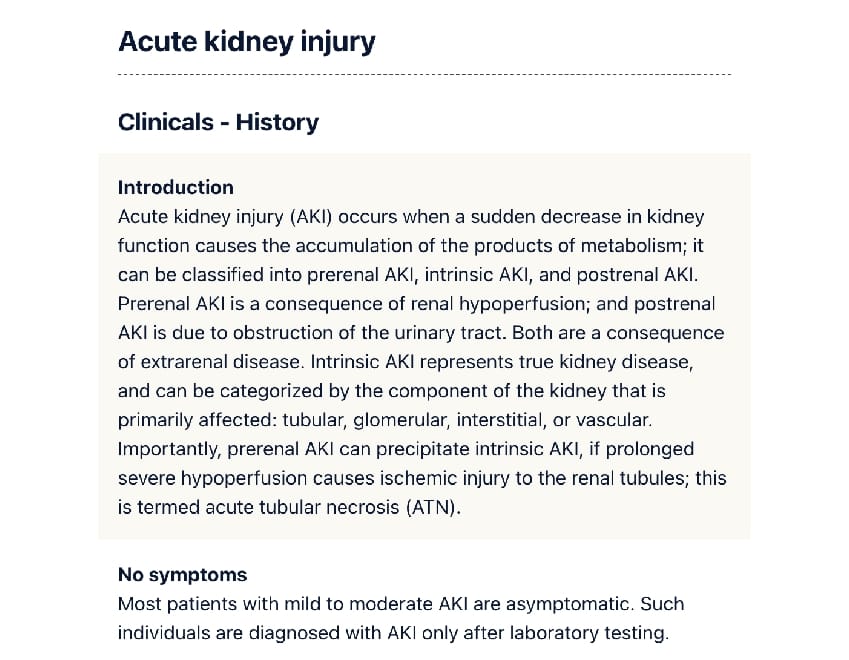
Prognosis: Your Diagnosis
Interactive scenarios to help you improve your ability to diagnose and manage patients over time (from presentation to admission to discharge and follow-up).
Scenarios provide relevant facts and succinct explanations behind the underlying diagnostic and management rationale. They cover medical knowledge in breadth, and each takes between 10 to 15 minutes to complete.
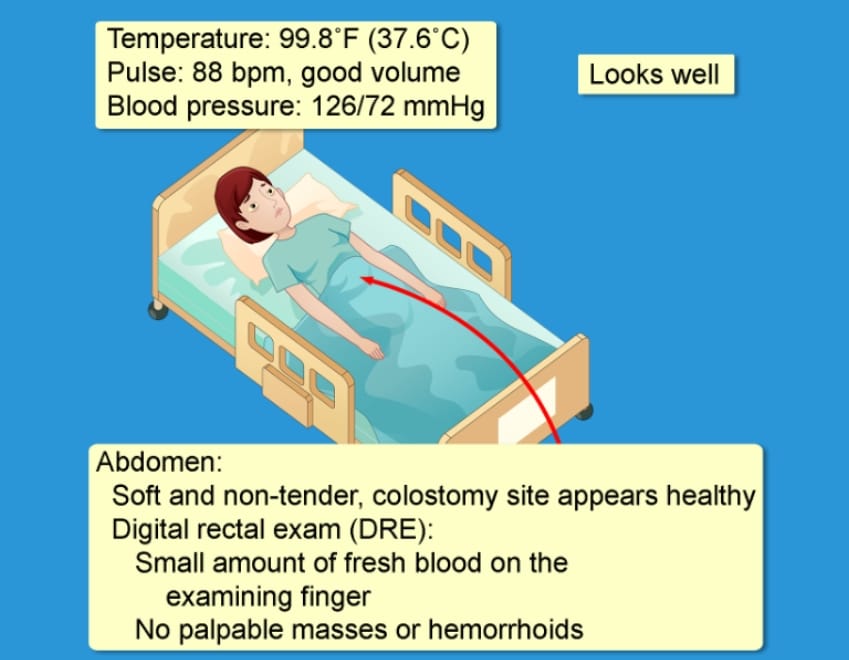
QBank Prepper (New!)
Multiple-choice questions (MCQs) to help you focus your test-prep time on medical knowledge blocks that can be more easily understood and recalled. MCQs provide relevant facts and succinct explanations justifying the rationale for each best answer recommended.
They are properly backed by citations to papers in peer-reviewed journals or standard textbook chapters, and can be used independently of one another. Each MCQ takes between one and two minutes to complete.
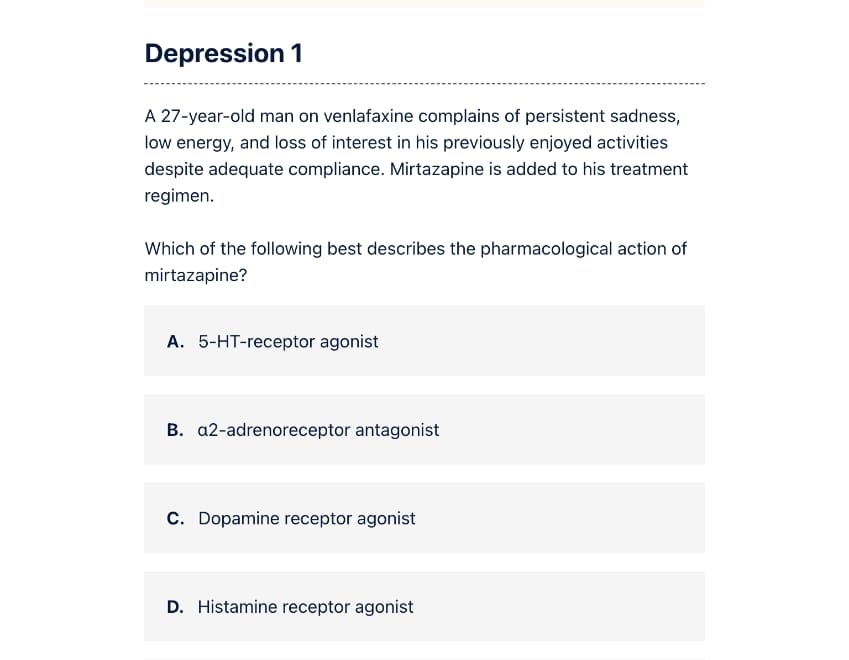
The game
Clinical Odyssey’s titles organize and deliver clinical knowledge in succinct, individual units called scenarios (LMs). Every Clinical Sense scenario, Explain Medicine article, Prognosis case, and QBank Prepper MCQ is an LM.
LMs provide just the right amount of information you need to achieve a specific task and strengthen a clinical concept. Irrespective of the title to which they belong, every LM includes:
- descriptive metadata for defining the main topic (subject and organ system covered, author and peer reviewer names, learning topics covered);
- facts essential for comprehending the main topic;
- contextual information for narrowing the scope of the main topic;
- succinct explanations for understanding all clinical reasoning pertinent to the main topic;
- facts, contextual information, and explanations of secondary topics relevant to the main topic; and
- detailed citations and references supporting the knowledge provided in the LM.
Combined, these features have proven to make the Clinical Odyssey LM a powerful resource capable of delivering bite-sized knowledge with a big learning impact.
A creative process built on quality assurance
Learn more about our authors → Learn more about our IMB peer reviewers →
Clinical Odyssey LMs are published regularly, while existing LMs are updated regularly as well. They are written in-house by our team of experienced and carefully-vetted clinicians, and peer-reviewed by one or more members of our International Medical Board (the MJ IMB). IMB members are experienced professionals accredited by the governing body in their country of practice, or senior specialist trainees enrolled in a fully accredited medical academic program.
Learn more about our authors → Learn more about our IMB peer reviewers →
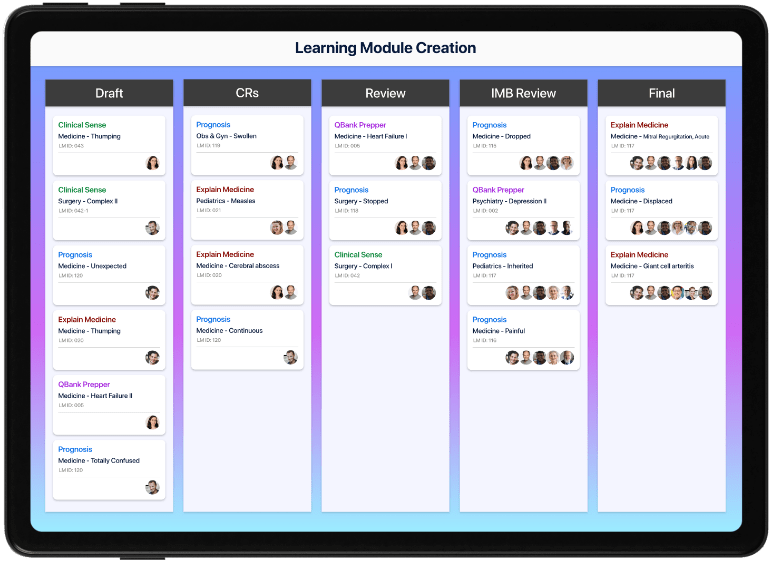

Creating a LM takes attention to detail and lots of practice. The process consists of five stages, with multiple quality checks to ensure that our work is of the highest standard. Actually, three of our five creation stages are purely about quality control:
- draft writing
- compliance reviews (CRs)
- editorial review
- International Medical Board (IMB) review
- final approval
CRs consist of an exhaustive set of criteria used to revise and evaluate an authors’ work. For instance, the CR for an Explain Medicine reference article covers 43 criteria split across three categories: structural, text, and medical quality. All LMs must attain a perfect CR score of 100% before they can advance to the next creation stages.
LM editorial reviews are done by Medical Joyworks’s editor-in-chief. These inspections ensure that our LM CRs didn’t miss anything. Editorial reviews also guarantee that all our LMs are consistent in tone and style.


IMB reviews are peer-reviews by independent professionals tasked with validating the realistic nature and academic quality of our work.
Since our LMs are a form of scholarly publication with real-life application, we uphold their quality and validity as such with the help of our IMB members. Over 180 recognized specialist physicians from around the world are members of our IMB Program. They work in academia, government, and industry.
Learn more about our IMB peer reviewers →
In the final approval stage, LMs are revised one more time by our team to ensure that all inputs, edits, and corrections have been taken into account. Should a problem arise, we assess its root cause, and make amends—then and there—to ensure that the same mistake does not occur again.
Discussion boards, customer support, and continuous improvements
We conduct periodic reviews of our content to certify that they remain accurate, up to date, and complete.
Moreover, every conversation with you in discussion boards, product reviews, emails, and calls is used to assess our work’s effectiveness. We analyze these interactions to determine whether an LM is delivering as promised, including whether you can easily understand it. And as noted before, whenever you or someone in our team points out a problem, we assess its root cause, and make amends—then and there—so that the same mistake does not occur again.
With a team of physicians, specialists, language experts, programmers, and production engineers behind all of our work, it is no wonder that you can always rely on our different titles and their library of LMs.



